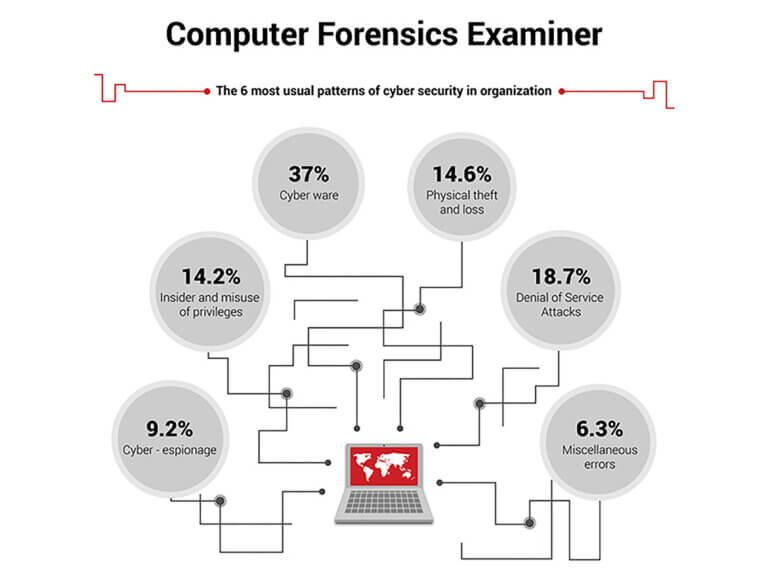What are Computer Forensics?
Computer Forensics, also known as Cyber Forensics, refers to the analysis of information in computer systems, with the objective of finding any digital evidence that can be used for legal proceedings, but also to discover the cause of an incident. Computer forensics is the process of extracting data and information from computer systems to function as digital evidence for civic purposes, or in most cases to prove and legally impeach cybercrime. The purpose of computer forensics is to provide forensic practices, legal processes, and ethical principles to assure reliable and detailed digital evidence that can be used for the courtroom needs. The objective of computer forensics is to guarantee a well-structured investigation and a follow-up of processes in order to resolve incidents and malfunctions in an organization
Why is Computer Forensics important to you?
A forensics process is applied after a cyber-attack or incident has occurred in order to collect and analyze the data to determine what happened, how did it happen and why did it happen? Computer forensics can be used as a tool to exploit backdoors that should be patched. A computer forensics investigation is a proficient mechanism that allows organizations to rationalize their time and immense financial impacts. An internationally recognized computer forensic professional will be able to provide a detailed investigation of computer systems and assist the law enforcement authorities. Computer forensics provides you with the advantage of learning and practicing the latest comprehensive security methodologies of network systems, encryption technology, file operating systems, and criminal science.
Benefits of Computer Forensics

Computer Forensics Foundation

